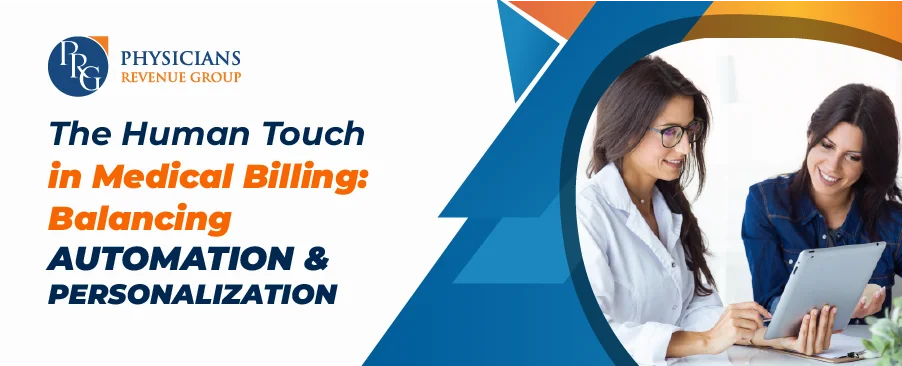
Email: info@prgmd.com | Call: +1 (630) 242-6474
Business hours: 9:00 to 5:00 | Monday to Friday
Email: info@prgmd.com | Call: +1 (630) 242-6474
Business hours: 9:00 to 5:00 | Monday to Friday

Table of Contents
ToggleIn the fast-changing field of healthcare, where new technology is transmuting the industry, one important thing sometimes gets forgotten—the human element. Technology has made medical billing services more efficient through automation in healthcare billing. But, in the rush to embrace automation, we shouldn’t forget the personal touch in medical billing. The need of the hour is to see how we can find the right balance between using technology and adding a human touch to healthcare billing services. Let’s see why the “Human Touch in Medical Billing” is important and how it can help healthcare providers and patients.
Automation in medical billing signifies a procedure where the charge input, remittance, and claim scrubbing are performed automatically. It can be done via the use of timers and natural language processing on a daily, weekly, or monthly basis, depending on how frequently is your claim filing.
Medical billing automation is a software program that executes ordinary and repetitive tasks. With automation, the tasks are worked on automatically rather quickly, posing fewer errors. When you automate your medical billing processes, your practice can significantly enhance its income and overall profitability.
The human touch in medical billing is essential for several reasons. The human touch in medical billing is essential for several reasons. As the healthcare industry is getting increasingly digitized and automated, personal interaction remains vital in billing.
With that said, let’s explore some advantages of automation in healthcare billing:
Share:
Categories
Recently Added

What is an ABN in medical billing?

What does a Clearinghouse do During Claims Submission?

What is EOR in Medical Billing?
We Would Love to Assist You!
We treat your data confidentially and don’t share any information with a third party.